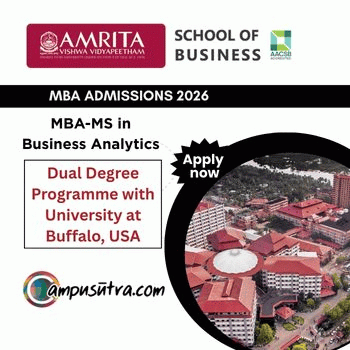The Ministry of Education organized a two-day Vice Chancellors’ Conference of Central Universities in Kevadia, Gujarat scheduled July 10–11, 2025. The conference marks the five-year anniversary of the introduction of the National Education Policy 2020 (NEP 2020), implemented on July 29, 2020. Central University leaders gather to assess institutional development and collaboratively shape the path ahead.
With Foreign Universities setting up campuses in India, Is Liberalization of the education sector coming up?
Western Sydney University of Australia to open campus in Greater Noida
The Hon’ble Union Minister for Education, Shri Dharmendra Pradhan; the Hon’ble Minister of State for Education, Dr. Sukanta Majumdar; and top officials from the Ministry attended the event.
At least 30 Foreign Universities expected to open campuses in India
Over the two days, convention focussed on three key themes:
- Strategic Alignment: Coordinating Central Universities with the future goals of NEP 2020.
- Peer Learning and Innovation: Facilitating dialogue among academic leaders to encourage innovation, build supportive academic environments, and address shared challenges.
- Future Preparedness: Equipping institutions to adapt to future policy shifts, legislative reforms, and the evolving global academic landscape in 2047.
“The Vice Chancellor should represent and uplift institutions in this view rather than merely manage them.”
Union Minister for Education and Skill Development, Shri Dharmendra Pradhan, who has been serving in the role since July 2021, inaugurated the conference with a speech that was both encouraging, reflective and thought-provoking, addressing the Vice Chancellors of various universities.
“I call upon all our VCs and academic leaders to chart out their own unique NEP implementation model for their respective universities, adopt student-first approaches and work towards establishing a new educational culture and educational model that is inclusive, holistic, futuristic and rooted in Indianness.” said Shri Dharmendra Pradhan.
Give the students a campus with International Standards
He also emphasized the urgent need to embrace innovation and artificial intelligence, and to revive India’s intellectual heritage. He stressed upon the importance of providing students with advanced, globally competitive educational tools and environments.
The Minister boldly redefined Vice Chancellors as cultural powerhouses — far more than administrators, they are visionary leaders shaping the spirit, values, and intellectual climate of their institutions. They go beyond bureaucracy to inspire academic excellence, generate innovation, and shape the character of future generations. Their influence is great and lasting, from lecture halls to executive tables.
Vice Chancellors have to strike a sensitive balance between conserving the distinct cultural and academic identities of their institutions and adjusting to changing international academic standards.
The future would not be patient
He points out that artificial intelligence is a transforming power redefining education’s future. He implores institutions to make quick decisions to create AI-ready infrastructure, update curricula, and give pupils the skills to succeed in a world more and more fueled by innovation, technology, and intelligent systems. The future, he cautions, would not be patient.
Rooted in India’s deep and old intellectual legacy, the Minister challenges colleges to aggressively re-examine, retrieve, and incorporate indigenous knowledge systems into current academic curricula. Referring to historical centers of learning like Nalanda, he stresses that India’s heritage as a world leader in knowledge is not only a point of pride but also a formidable asset for intellectual uniqueness. He maintains that this legacy should influence research, teaching, and curricula as well as be ceremonial, therefore providing a distinctively Indian viewpoint within a global academic environment.
AICTE Refund Policy 2025 -2026. MBA Admission & Cancellation
Surpass global standards in research, invention, and interdisciplinary education.
The arrival of foreign universities in India is upsetting the playing field and presenting Central Universities with a strong challenge. Indian universities have a high-stakes fight given the fierce competition for top-tier students and faculty, a pressing need to update infrastructure and elevate academic standards to world-class levels, and the complex network of worldwide legal problems. Only those willing to innovate, adapt, and strongly defend their territory will thrive and survive in this new academic environment.
The Education Minister established an ambitious two-year strategy to project India onto the world stage as a leader in knowledge generation and dissemination. He challenges Indian organizations to aspire beyond national greatness, asking them to satisfy and surpass global standards in research, invention, and interdisciplinary education.
He strongly supported universities that prioritize their students’ needs by fostering creativity, innovation, and curiosity, which are crucial for creating a nation that is globally competitive and ready for the future. Central Universities should, in his opinion, creatively combine deep-rooted traditions with advanced technology and visionary leadership with innovative creativity.
Setting a commanding and motivating tone for the whole conference, his forceful statement calls on institutions to change and boldly lead into the future.
As the discussions ignite across the conference, the Minister’s visionary blueprint lays down an unshakable foundation—daring educators and institutions to radically rethink Indian higher education’s place in the 21st century. His bold challenge fuses innovation with heritage, pushing India to not just compete but dominate the global knowledge arena with unmatched brilliance and ambition.
Ex Chairman AICTE Prof. Sahasrabudhe was also present in the event.
“In our country, we never allow peer assessment or evaluation. I think this is one area which we should also start strengthening.”, said Prof. Anil D Sahasrabudhe, ex-chairman of AICTE, Chairman of executive committee of the National Assessment and Accreditation Council.







